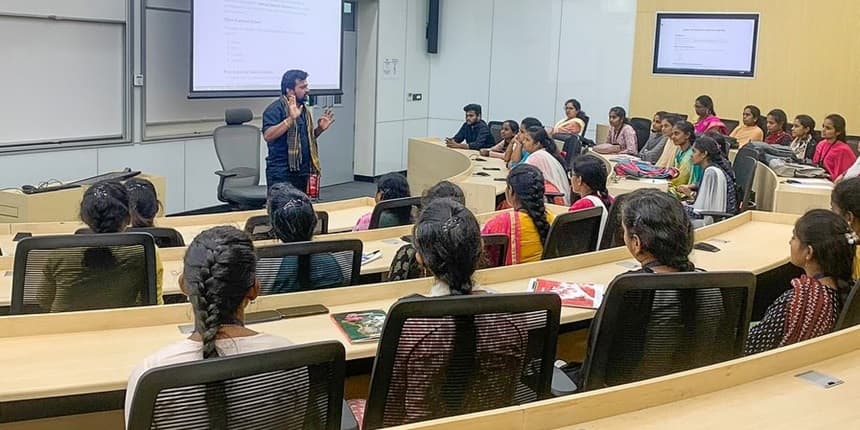Binary, multi-level accreditation for institutions in NAAC reforms; implementation in two stages
Vagisha Kaushik | January 27, 2024 | 08:28 PM IST | 3 mins read
NAAC executive committee decided to implement Radhakrishnan committee's 2 reforms in next four months and by December 2024 respectively.

NEW DELHI: Binary accreditation and leveled accreditation are the reforms recommended by the education ministry’s committee for the National Assessment and Accreditation Council (NAAC) for strengthening the assessment process of higher educational institutions. The NAAC executive committee has decided to implement the reforms in two stages, one in the next four months and the second by December 2024.
Binary Accreditation will replace grades and aims to encourage all the institutions to participate in the accreditation process to help create a quality education system. The binary accreditation is in line with the best practices followed from many leading countries in the world, as per an official statement.
Maturity-Based Graded Accreditation will include five levels – Level 1 to Level 5 – and will encourage accredited institutions to improve their quality from ‘Level 1’ to ‘Level 4’ as Institutions of National Excellence, and then to ‘Level-5’ which will be Institutions of Global Excellence for multi-disciplinary research and education.
“The leveled accreditation shall enable Indian institutions to significantly improve their quality and position themselves among global top institutions,” the NAAC said.
The metrics for both accreditations will focus on processes, outcomes and impact across different attributes of HEIs. “The new accreditation process shall consider the heterogeneity of HEIs in the country, categorize them based on their orientation/vision and heritage/legacy, and then seek information from the HEIs that are appropriate for their category rather than a one-size-fits-all model. There will be a special focus on rural and remote location institutions through mentoring and handholding,” said NAAC in its statement.
NAAC Accreditation: New data collection system
The committee has also proposed in its report ‘One Nation One Data Platform’ as part of the reform to ensure integrity and transparency in handing institutional data. The new platform will capture superset of data from the institutions for the different purposes (of approval, accreditation, ranking) with an in-built design for collateral cross-checking to check authenticity of data. Besides, to improve the validity and reliability of the data “Stakeholder validation” has been proposed to effectively integrate students, industries and others as part of the accreditation and ranking process.
The system will be based on trust and data driven with least visits to an institution for verification. However, it will carry heavy penalties on giving wrong submissions. In addition, there will be a provision for customized ranking based on industry, funding agencies, students, and more.
Talking about the implementation, NAAC said, “The recommended reforms shall be implemented in two stages. In the first stage, the Binary accreditation will be implemented in the next four months and no new applications will be accepted as per the present methodology thereafter. Institutions that have already applied and are applying in the next four months shall have the option to either go by the present process or by the new methodology of binary accreditation. The Maturity based Graded levels will be implemented by December 2024.”
The council informed the union education minister Dharmendra Pradhan on January 16 accepted the final report on NAAC reforms which included the feedback of those concerned. The report was formed by the panel headed by K Radhakrishnan, former chairman of ISRO and chairperson of the standing committee of IIT Council.
Also read NAAC Clarification: 'Process of Assessment and Accreditation is transparent'
“These reforms have been proposed with a strategic intent to be consistent with the Vision of NEP 2020, adopt a simple, trust-based, credible, objective and rationalized system for approval, accreditation and ranking of HEIs, with a technology-driven modern system that could replace or minimize manual involvement to make the accreditation process to be transparent and integrate the inputs of the stakeholders,” the council said about the reforms.
NAAC further informed that the methodologies and formats are being redesigned and will be reflected in the data collection and validation process using One Nation One Data Platform making the system friendly, easy and smooth.
Follow us for the latest education news on colleges and universities, admission, courses, exams, research, education policies, study abroad and more..
To get in touch, write to us at news@careers360.com.